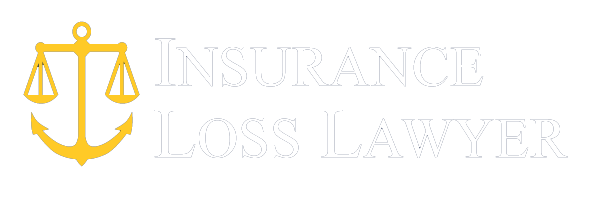
When a client hears that they must be deposed, he or she often becomes concerned as they are unsure how to answer a question properly and often at times, their nerves are worn on their sleeves during the Deposition. This can be quite beneficial to the opposing party as it may cause them to use even more intimidating tactics to well, completely throw you off of your game. In an effort to make the Deposition process a bit smoother for you, we have come up with this “Tips for Deponent” in order to have you be properly prepared.
- TELL THE TRUTH. This is a rule of self-preservation for witnesses. The witness will be under oath and perjury will subject the witness to criminal sanctions. Assume that the examining attorney is supporting himself on his professional ability and that this includes the ability to make a witness who is playing fast and loose with the truth very uncomfortable. Also, remind the witness that ultimately, the opposing side will find out about a lie, and that lie will inevitably come back to haunt the witness.
- BE YOUR NATURAL SELF. Look straight at the examining attorney, do not cross your arms, keep your hands down and away from your mouth, and be as quietly positive as you can be.
- ANSWER THE QUESTION AFTER ALLOWING TWO FULL SECONDS TO PASS. That gives me an opportunity to object. It also gives you time to make sure that the answer is correct. In addition, a silent pause may prompt the questioner to explain the question, making your job easier. You are in control of what you are saying and you should relax and take the time to respond correctly to the question asked.
- ANSWER THE QUESTION ASKED AND ONLY THE QUESTION ASKED. Resist the urge to anticipate the next question and do not volunteer any more information than necessary to respond to the question posed. If the question can be answered with a simple yes or no, answer it that way and stop. Make the questioner ask follow-up questions.
- A DEPOSITION IS NOT THE TIME TO TELL YOUR STPRY AND EXPLAIN EVERYTHING. Answers should be as short as possible and to the point. You are not there to educate the examining attorney if he/she is not asking the right questions or is not following up on questions.
- BE SURE THAT THE QUESTION IS FULLY COMPLETED BEFORE BEGINNIG THE ANSWER. A question may take a surprising turn before it is finished.
- DO NOT ANSWER A QUESTION YOU DO NOT UNDERSTAND. Ask the examiner to repeat the question. Answer it only if you fully understand it. It is up to the questioner to frame questions in an intelligent manner; if he/she cannot do so, do not help him/her. Do not explain to the examiner that the question is incomprehensible because he/she has misunderstood the terms used in your business, trade or science. Do not help the examiner by saying, “Do you mean X?” or “Do you mean Y?” You will then be asked both of those questions.
- TALK IN FULL, COMPLETE SENTENCES. Speak slowly and clearly for the record. The Court Reporter cannot take down gestures. Be wary of questions and answers with double negatives in them.
- IF YOU ARE FINISHED WITH AN ANSWER AND THE ANSWER IS COMPLETE AND TRUTHFUL, REMAIN QUIET. Do not expand upon the answer. Do not add to the answer simply because the examiner looks at you expectantly. If the examiner asks you if that is all you recollect, say “yes” if that is the case. A pause in the questioning will make you feel the need to keep talking. Be aware of this. It is a standard trick. You can remain in control by waiting for the next question.
- YOU SHOULD ONLY ANSWER WHAT YOU PRESENTLY REMEMBER. Be as specific as your memory allows. If you remember exact dates and times, provide them. If you do not remember such information, say so.
- DO NOT GUESS! If you do not know or cannot recall something, say so. Do not be afraid to say that you do not know something. Witnesses are not expected to know or remember every aspect of a particular transaction, circumstance or event. Do not “fill in” details you do not clearly remember. Never make things up as it will be impossible to escape the full impact of fabricated testimony later on in the case.
- LEAVE THE DOOR OPEN TO HONESTLY RECALL SOMETHING AFTER THE DEPOSITION THAT YOU DID NOT RECALL DURING IT. If the lawyer asking you questions says things like, “Is that it?” or “Were there any others?” respond by saying, “To the best of my recollection.”
- STAY OUT OF ARGUMENTS BETWEEN ATTORNEYS. This can only create more of a conflict and the least you say or interject the better.
- BE PARTICULARLY CAUTIOUS IF THE ATTORNEY ASKS YOU TO ESTIMATE SOMETHING. If asked to do so, make sure that your answer is qualified or tell the examiner that you are unable to estimate.
- REMAIN CALM AND POLITE AT ALL TIMES, REGARDLESS OF ANY PROVOCATION BY THE EXAMINER. Never show anger or argue with the examiner. The opposing attorney is judging not only the substance of your testimony, but also your ability to give it in a formal setting. Also, answers given in anger are rarely good answers and remember that nothing is off the record.
- WATCH FOR “TRICKY” QUESTIONS THAT ASSUME SOMETHING THAT IS NOT TRUE. Examples are, “When did you stop beating your wife?” or “Did you know that you were speeding?” Correct the false assumption in the question before answering. For example, “I do not believe that I admitted to beating my wife” or “I do not believe that I admitted to speeding.”
- DO NOT ADOPT AN EXAMINER’S SUMMARY OF YOUR TESTIMONY IF SHE MAKES ONE.
- DO NOT EXCUSE YOUR LACK OF MEMORY BY COMPLAINING ABOUT HOW LONG AGO THE EVENTS OCCURRED. This complaint always causes the attorney to attempt to get you to admit that your memory is flawed.
- DO NOT VOLUNTEER YOUR THOUGHT PROCESSES AS TO HOW YOU REACHED AN ANSWER. If your answer depends on your recollection of facts not called for by the question, do not tell the examiner about those other facts.
- IN TESTIFYING ABOUT CONVERSATONS, MAKE IT CLEAR WHETHER YOU ARE PARAPHRASING OR QUOTING DIRECTLY.
- IN ANSWERING QUESTIONS REGARDING COMPLICATED EVENTS OR EXTENSIVE CONVERSATIONS, SUMMARIZE WHEN POSSIBLE. The examiner, if she is doing her job, will ask for all the details. If the examiner accepts your summary, even better.
- DO NOT ANSWER A COMPOUND QUESTION UNLESS YOU ARE CERTAIN THAT YOU HAVE ALL PARTS OF IT IN YOUR MIND. If it is too complex to be held in your mind, it is too complex and ambiguous to answer. If there is any doubt, decline to answer it.
- NEVER CHARACTERIZE YOUR OWN TESTIMONY WITH PHRASES SUC AS “
IN ALL CANDOR,” “HONESTLY,” OR “I’M DOING THE BEST I CAN.” - AVOID ADJECTIVES AND SUPERLATIVES. “I never” or “I always” have a way of coming back to haunt you.
- DO NOT TESTIFY OR GUESS ABOUT WHAT OTHER PEOPLE KNOW UNLESS YOU ARE SPECIFICALLY ASKED TO DO SO.
- DO NOT VOLUNTEER YOUR STATE OF MIND. If the examiner asks, “Did you read the document?” the answer should be “Yes,” not “Yes, and I believe every word of it.”
- AVOID ANY ATTEMPT AT LEVITY OR SARCASM. Sarcasm is often misunderstood to be the truth when your testimony is later read aloud.
- AVOID EVEN THE MILDEST OBSCENITY, AND ABSOLUTELY AVOID ANY RACIAL OR ETHNIC SLURS OR REFERENCES. If you do not follow this rule, rest assured that someone on the jury will be offended when they hear your testimony.
- THERE IS NO SUCH THING AS “OFF THE RECORD” FOR YOU AS A DEPONENT. If you have a conversation with anybody in the Deposition room, be prepared to answer questions about the conversation.
- IF THE EXAMINER APPEARS TO BE CONFUSED, DO NOT HELP HIM. In all likelihood, the examiner is acting that way to trap or confuse you.
- DO NOT BE DRAWN IN BY THE EXAMINER’S NODS OF THE HEAD OR SHRUGS OF THE SHOULDER. Ignore the examiner’s body language.
- IF YOU ARE CAUGHT IN AN INCONSISTENCY, DO NOT COLLAPSE. State the reason for inconsistency only if you are asked. Rehabilitation is done at trial or later in the Deposition by the presenting attorney.
- EVERY WITNESS MAKES MISTAKES. Do not become upset if you realize that you made one. If you realize that you made a mistake in your testimony, and you can correct the mistake easily, correct the mistake. Simply state that you made a mistake earlier about X and would like to correct the answer to the question.
- IF INFORMATION IS IN A DOCUMENT WHICH HAS BEEN AMRKED AS AN EXHIBIT, ASK TO SEE THE DOCUMENT. Do not say what the document says without first carefully reading it at the Deposition. Do not make comments about the document except in answer to a specific question about it.
- IF INFORMATION IS IN A DOCUMENT WHICH IS NOT AN EXHIBIT AT THE DEPOSITION, ANSWER THE QUESTION IF YOU RECALL THE INFORMATION REQUESTED. Do not tip off the examiner as to the existence of documents he does not know about. If you cannot answer the question without looking at a document which is not an exhibit, simply answer the question by stating that you do not recall.
- DO NOT LET THE EXAMINER PUT WORDS IN YOUR MOUTH. Do not accept his/her characterization of time, distance personalities, events, etc…
- PAY PARTICULAR ATTENTION TO THE INTRODUCTORY OF CLAUSES PRECEDING THE “GUTS” OF THE QUESTION. Leading questions are often preceded by statements which are either half-true or contain facts which you do not know to be true. Do not have the examiner put you in the position of adopting his/her half-truths or unknown facts on which he will base further questions.
- YOU MAY TAKE A BREAK ANY TIME YOU PLEASE. You should certainly ask for a break if you think you have made a mistake in your testimony and you want to discuss it with me or if you have a question you need clarified by me.
- IF YOU ARE INTERRUPTED, LET THE LAWYER FINISH HIS/HER INTERRUPTION AND THEN FIRMLY, YET COURTEOUSLY, STATE THAT YOU WERE INTERRUPTED. Finish your answer to the first question and then wait for the interrupting question to be asked again.
- DO NOT AGREE TO SUPPLY ANY INFORMATION OR DOCUMENTS REQUESTED BY THE EXAMINER. If reference is made to documents or information not present, the request for that information or those documents should be made to me. I will either answer the request or will take it under advisement. If you are forced to comment, simply say “I will look for it. If I find it, I will furnish it to my lawyer.”
- LISTEN TO THE COMMENTS OR OBJECTIONS I MAKE. If I object, I may be giving you a clue as to the dangers hidden in the question. If I interrupt you to say something, STOP TALKING! Do not finish your answer.
- YOUR PRIVATE CONVERSATIONS WITH ME, INCLUDING OUR PRE-DEPOSITION MEETING, ARE PROTECTED BY THE ATTORNEY-CLIENT PRIVILEGE. The privilege also attaches to letters sent to and from me. Do not waive the privilege by discussing these conversations or letters with anyone else, including the examining attorney.
- YOU MAY BE ASKED WHAT DOCUMENTS YOU REVEIWED FOR THE DEPOSITION AND WHO YOU SPOKE WITH IN PREPARATION FOR THE DEPOSITION. Tell the examiner what documents you reviewed, if you remember. Do not deny that you met with me. Our meeting is perfectly legal.
WE HOPE THAT THESE TIPS WERE HELPFUL!


